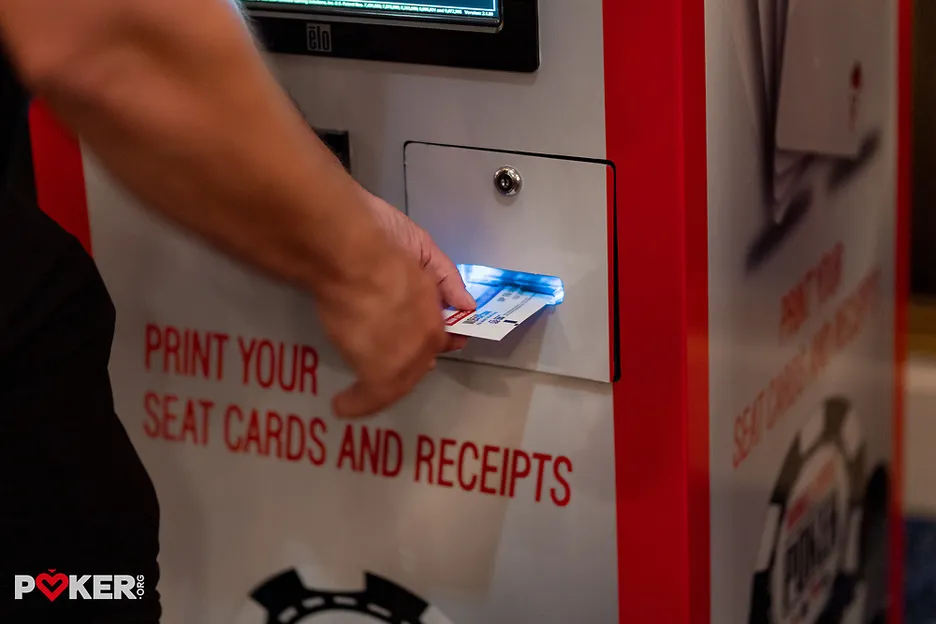Jim Reid is a longtime lover of poker, a member of the PokerOrg Player Advisory Board, and host of the popular RecPoker podcast.
Hey, gang! With my trip to play in the WPT World Championship only weeks away, things are heating up. I had a really fun chat with poker’s greatest villain David Lappin the other week, and with an eye to December, one of the things I asked him about was staking, or selling action.
David often sells a lot of his action for bigger events, both to smooth out the variance of tournament poker and also to allow him to play more events than he’d be able to on his own dime. I sold a huge chunk of my WSOP Main Event action this past summer, and have already wrapped up my staking offer for the WPT, so I’m no stranger to the idea. But one question that I had a really hard time answering was: how much to sell, and how much to keep?
David’s answer from our interview on the RecPoker podcast helped a lot, but I’m still not sure I have an objectively sound way to choose. Look out for a question from me on this subject at Ask the Org very soon - how do YOU decide?
Bankroll management... and the world's most boring magic trick
This question was never more clear to me than last week when I noticed a post by Brian Winter in our RecPoker discord channel getting a lot of responses. Brian knows poker - he was RunGood’s Player of the Year last year! - but he’s been working on other projects lately, and asked this of our group:
"I've been a pro basically the entire time I've played poker, and am very accustomed to the bankroll management/playing style/etc that comes with that. I'm transitioning to being a recreational, but a big issue I'm running into is budgeting. How do you guys justify the cost? It's so expensive! You'd think having been a pro for so long I'd have gotten used to the money aspect, but tbh it's like the money didn't really exist, it was just buy-ins."
Of course, being a recreational player it’s a very different decision than for the pros. Pros have a bankroll they need to protect - in fact it’s the tool of their trade, they can’t work without it. Most recs, on the other hand, don’t have a poker bankroll to protect, they have a poker budget to enjoy! So losing it all by taking a shot on a bucket-list item isn’t the end of the world.
That’s one of the perks of having a day job (okay, it’s the main perk): if you run out of poker money you can go to work and in a couple of weeks you’ll have made some more poker money. It’s like a magic trick! A boring, menial, 9-5 magic trick. But it does mean that recs and pros should have different approaches to tournament buy-ins.
I’ve been a winning player long enough that, even as a rec, I have a separate bankroll for poker tournaments and expenses, and I don’t want to have to dip into my ‘real life’ money that Mrs. BLUFFSTORINI and I use for everyday expenses like groceries (you know, peanut butter, bread, jam, that kind of thing) if I go on a long downswing. So that’s why I sell action to bigger events - and that’s why I’ve been working so hard on the coaching sessions I’ve been taking with Matt Affleck lately!
More c-betting advice
Last week we talked about c-betting, and I wanted to leave you today with another simple heuristic you can immediately apply at the tables.
When you open-raise and get called by a player in position, how many seats are between you and them? On broadway flops like 
This is because if you open from the cutoff and get called by the button, their calling range has far fewer combos that whiff on that board than your opening range; their range is actually stronger than yours, they have less air than you.
But if you had opened from an earlier position, with a tighter range, almost your entire opening range smashes that flop; you have less air, and you can c-bet more frequently.
As the WPT World Championship gets closer, these are the kind of lessons I'm hoping I'll remember when the chips start flying!
Check back next week for more from the hardest working ‘Rec’ in poker, Jim Reid.





































